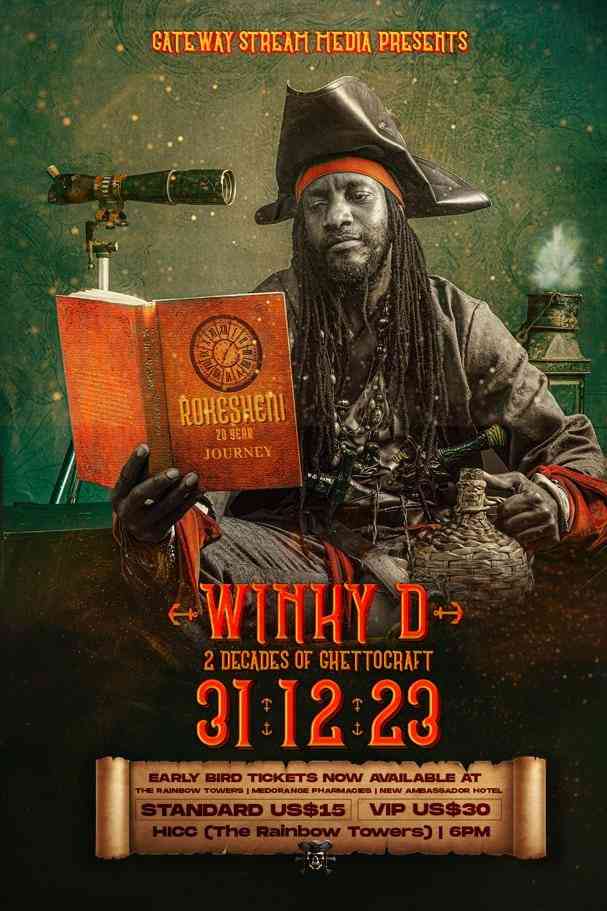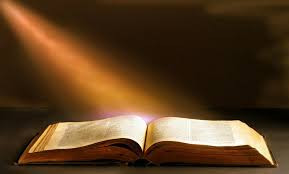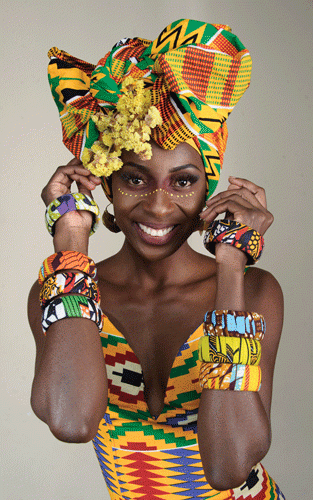
Of late, we have witnessed divided opinions on our music legend Wallace Chirumiko, who is popularly known as Winky D.
This is on account of his recent songs, which have mainly touched on the social injustices faced by the majority in Zimbabwe, predominantly as a consequence of corruption and mismanagement by those in power.
Some of these songs include Vashakabvu Part 2, Ngirozi, Ibotso, and Chauruka.
As to be expected in a deeply-polarised country like ours, there were fierce disagreements between those who are fully behind this Zimdancehall artiste and, of course, those rabidly against the stance he has chosen to take.
It is never easy speaking out and standing up for the oppressed and suffering millions in Zimbabwe due to the inevitable ferocious backlash from an intolerant regime that does not want its nefarious activities to be exposed.
Therefore, anyone who dared to go down this route have found themselves in the middle of relentless attacks, propaganda onslaught, mudslinging as well as threats to their personal being.
There are those, especially in the opposition, who have lost their lives, after being beaten up, had their homes razed or abducted, never to be seen or heard from again.
The names Netsai Marova, Cecilia Chinembiri and Joanna Mamombe readily come to mind. The three were abducted in 2020 after being “arrested” for staging an unsanctioned gathering during a COVID-19 lockdown.
- Religion: Overcoming doubt and unbelief
- Winky D dominates Trevor’s In Conversation
- Religion: Overcoming doubt and unbelief
- Winky D dominates Trevor’s In Conversation
Keep Reading
One political activist who touches many hearts is Itai Dzamara, who was forcibly taken from a barbershop and vanished into thin air years ago.
Who can forget the hundreds massacred by Zanu PF-linked thugs at the dawn of the new millennium. Many were also later callously murdered after the 2008 presidential elections when the late former President Robert Gabriel Mugabe lost to MDC’s Morgan Richard Tsvangirai?
Of course, there are those who have been arrested and jailed on reportedly spurious charges — such as Tsitsi Dangarembga Hopewell Chin’ono, Jacob Ngarivhume and numerous others like Job Sikhala who are still waiting to prove their innocence.
It then comes as no major surprise when we see Winky D being subjected to this barrage of attacks, simply for expressing the disgruntlement and anger of millions of impoverished Zimbabweans.
What is even more disturbing is that there are some within the ruling establishment who have gone to the extent of alleging that Winky D was no longer a musician, but a politician. As a matter of fact, they have gone as far as to threaten that he should not be shocked if he is treated as an opposition politician.
In other words, he may experience the same persecution as those I have already highlighted.
However, is there anything wrong with musicians singing about issues to do with the poverty and suffering endured by ordinary citizens at the hands of their leaders? Only ignorance can inspire such misplaced and misguided beliefs.
I will not even bother reminding Zimbabweans that our fight against colonial rule was also supported by such legendary singers as Thomas Mapfumo, Zex Manatsa, Chinx Chingaira and Oliver Mtukudzi among many more
These great men are still revered to this day — with Mtukudzi having been declared a national hero after this passing on in 2019.
If it is such a terrible thing for musicians to sing about politics, why are these legends, except maybe for Mapfumo, not despised and regarded with disdain as having crossed the red line in their industry?
Anyway, there is more.
We now need to take a look at the history of the art of singing itself. According to most accounts, the first instances of singing in the history of mankind were actually not associated with frivolity or entertainment.
Early singing was connected with matters vital to the individual, social group or religion.
This was also used to invoke their gods with prayers and incantations, celebrate their rites of passage with chants and songs and recount their history and heroics with ballads and epics. We can trace this phenomenon back to 500BC, when the Psalms of David and the Songs of Solomon were composed.
There is evidence of the various Mesopotamian cultures which thrived on music as an art from 3 500 to 500BC, and their writings mention both professional and liturgical music. The poetry of Sappho (600BC) and others was often sung in contests, with melodies and rhythms based on the poetic meters.
Egyptian musical culture existed by the 4th millennium BC and music was prominent in the social and religious life of the old kingdom.
When under oppression or slavery, known groups, such as slaves from Africa to Europe and the Americas, would use singing as a way of expressing their pain and sorrow, while similarly comforting and strengthening each other with promises of freedom soon.
That is why during our liberation struggle, songs played a pivotal role to motivate us to continue the struggle for independence.
Nationalist movements had their own singers — such as the Zanu and LMG choirs, for Zanla and Zipra, respectively.
In fact, the reason Jamaican reggae star Bob Marley was invited to Zimbabwe’s independence celebrations in April 1980 was his fearless political songs which urged people to rise up against oppression.
He even penned a catchy tune on Zimbabwe’s freedom, which was a hit among the black majority at that time?
Are we then to say that Bob Marley had crossed the line and was no longer a musician, but a politician?
The history of music clearly shows that early singers seldom sang about falling in or out of love, drinking or partying all night or buying the latest car. There was always a deeper meaning which touched on the livelihood, wellbeing and plight of the affected people.
Indeed, they could be described as politicians or activists.
In so doing, “real” musicians sing the stuff that Winky D and others before him dared to sing about.
I will dare label anything else outside his courageous songs as not being “authentic music”. “Authentic” musicians sing for the poor and suffering and against social injustices and oppressive leaders.
In other words, what Winky D is doing is exactly what is expected of him as a musician. He is the real deal.
Those who want to sing about sleepovers, lovers, money, cars and drinking alcohol can do so. However, as history has shown us, singing on frivolous issues or merely for the sake of entertainment was never what music was about.
So, before all of those Zanu PF apologists start spewing vitriol and hurling threats and insults at Winky D, they need to understand that music was born out of politics.
Music and the welfare of the people are one.Tendai Ruben Mbofana is a social justice activist, writer, author and speaker. He writes here in his personal capacity.
Tendai Ruben Mbofana is a social justice activist, writer, author and speaker. He writes here in his personal capacity.










